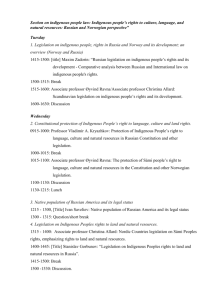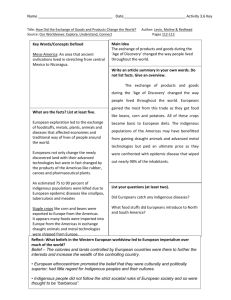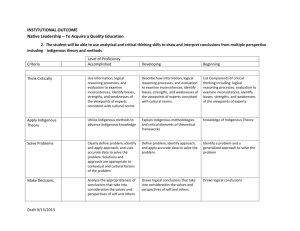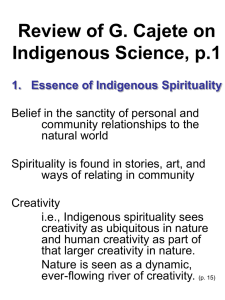Thailand
advertisement
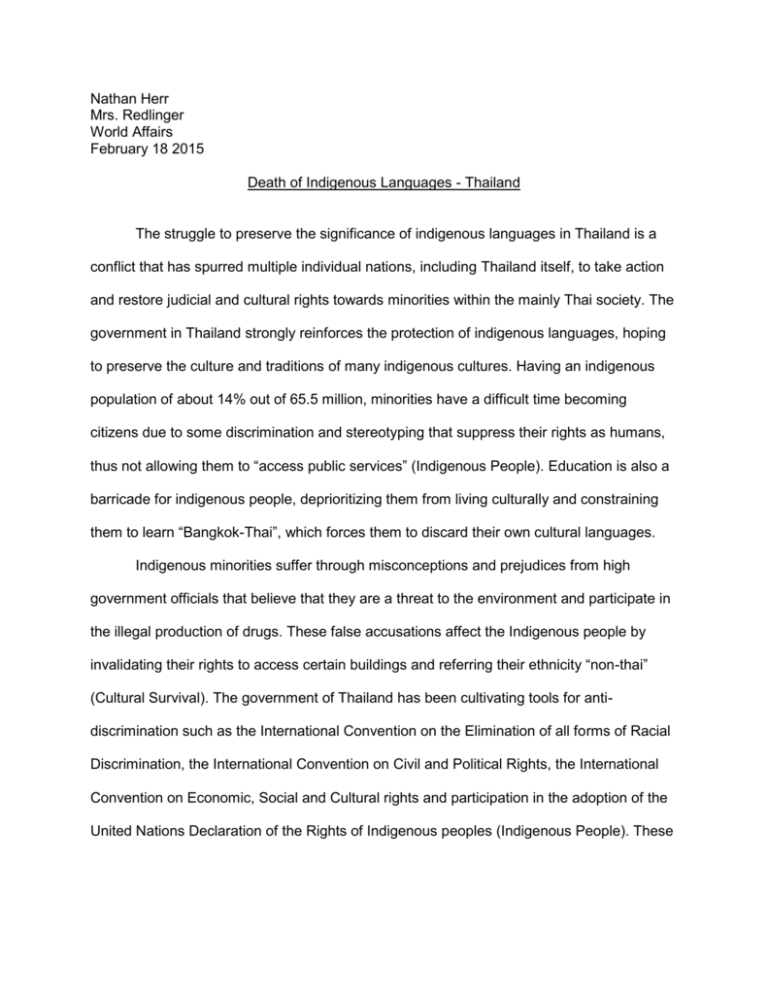
Nathan Herr Mrs. Redlinger World Affairs February 18 2015 Death of Indigenous Languages - Thailand The struggle to preserve the significance of indigenous languages in Thailand is a conflict that has spurred multiple individual nations, including Thailand itself, to take action and restore judicial and cultural rights towards minorities within the mainly Thai society. The government in Thailand strongly reinforces the protection of indigenous languages, hoping to preserve the culture and traditions of many indigenous cultures. Having an indigenous population of about 14% out of 65.5 million, minorities have a difficult time becoming citizens due to some discrimination and stereotyping that suppress their rights as humans, thus not allowing them to “access public services” (Indigenous People). Education is also a barricade for indigenous people, deprioritizing them from living culturally and constraining them to learn “Bangkok-Thai”, which forces them to discard their own cultural languages. Indigenous minorities suffer through misconceptions and prejudices from high government officials that believe that they are a threat to the environment and participate in the illegal production of drugs. These false accusations affect the Indigenous people by invalidating their rights to access certain buildings and referring their ethnicity “non-thai” (Cultural Survival). The government of Thailand has been cultivating tools for antidiscrimination such as the International Convention on the Elimination of all forms of Racial Discrimination, the International Convention on Civil and Political Rights, the International Convention on Economic, Social and Cultural rights and participation in the adoption of the United Nations Declaration of the Rights of Indigenous peoples (Indigenous People). These laws were constructed in order to protect the citizenship of the Indigenous people, but also reduce the discrimination from high-positioned officers within the Thai government. Education stands as a major contributor towards the disappearance of indigenous culture and language. As indigenous children attend educational opportunities, the thai educational system pressurizes them to learn bangkok-thai, which vastly decreases the likelihood of learning their own traditions and languages (Cultural Survival). In 2005, the thai cabinet constructed a declaration that allowed all children, including non-thai, the right to receive education (Education). Today, the Thai government is refining laws such as the Citizenship Act of 1965, which gives rights to Indigenous minorities and provides their citizenship to the Thai community. The government is also attempting to develop more regulations that allow indigenous children to comprehend their own culture while learning Bangkok-thai as well. Cited Sources "Are There Indigenous Peoples in Asia?" Cultural Survival. N.p., 02 Apr. 2010. Web. 23 Feb. 2015. "Education." UNICEF Thailand. N.p., n.d. Web. 24 Feb. 2015. "Indigenous Peoples of Thailand | ヒューライツ大阪." Indigenous Peoples of Thailand | ヒューライツ大阪. N.p., n.d. Web. 23 Feb. 2015.




